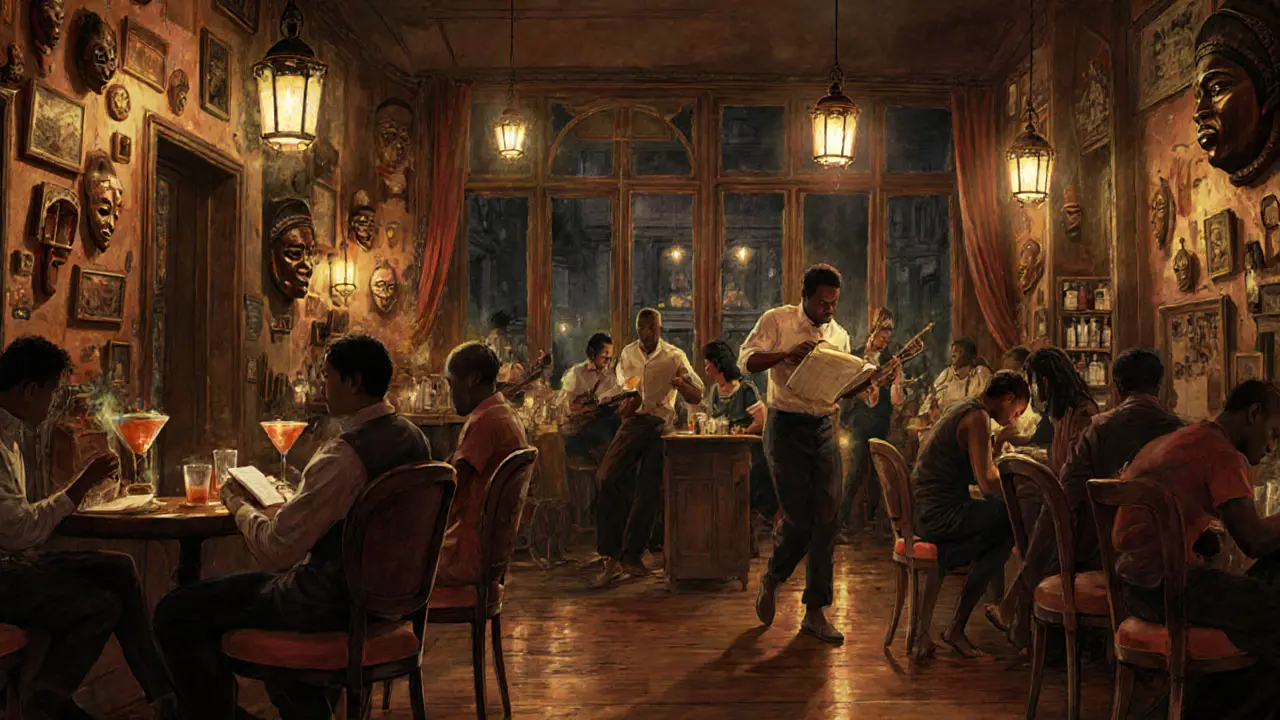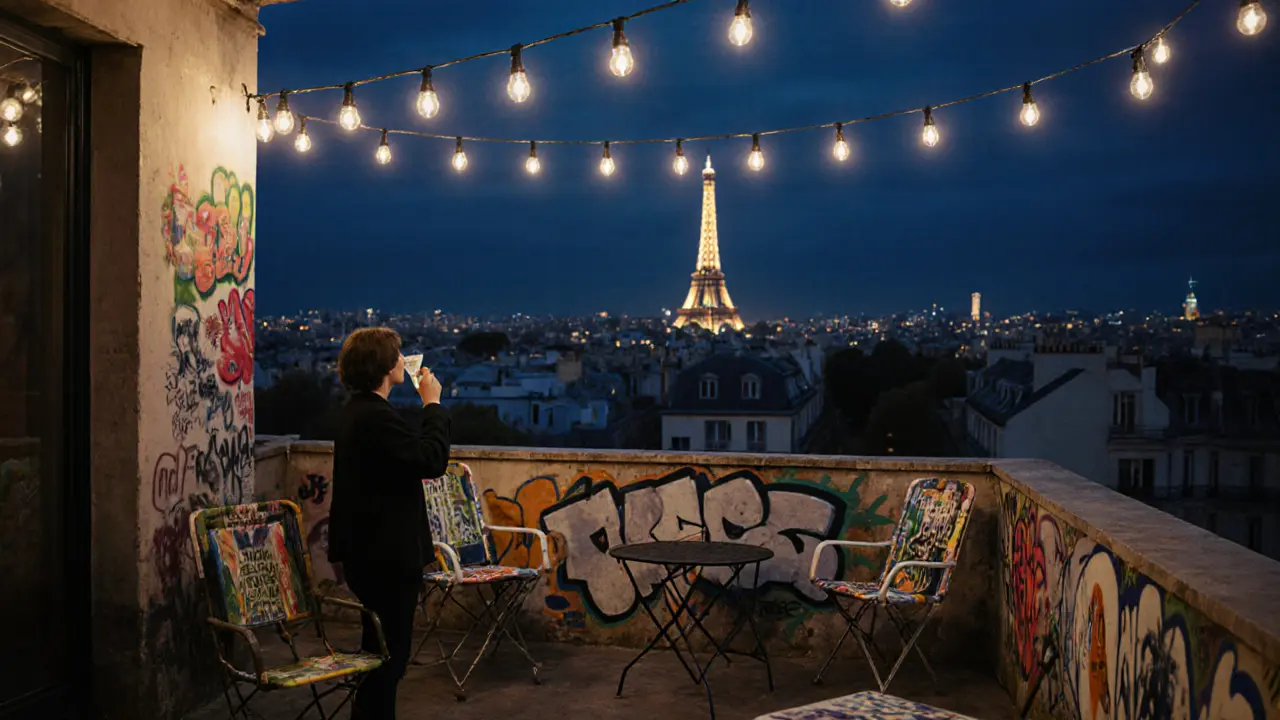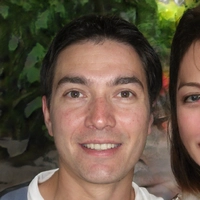Paris doesn’t sleep when the sun goes down-it transforms. The city that dazzles by day with its cafés, museums, and cobblestone streets becomes something even more alive after sunset. This isn’t just about drinking and dancing. Paris after dark is a layered experience: jazz in hidden cellars, wine bars where locals debate art over glasses of natural wine, rooftop terraces with views of the Eiffel Tower flickering on, and midnight snacks at boulangeries that never close. If you think Paris nightlife is all about tourist traps and overpriced cocktails, you’re missing the real rhythm of the city.
Where the Locals Go: Beyond the Tourist Hotspots
Champs-Élysées and Montmartre have their charm, but if you want to feel like a Parisian after midnight, you need to know where the real action is. In the 11th arrondissement, Bar des Musiciens has been serving cocktails since 1978. No neon signs, no bouncers, just a long wooden bar, vinyl spinning from the 70s, and regulars who’ve been coming for decades. The drink menu changes weekly, and the bartender will ask you how your week was before making your order.
Le Comptoir Général in the 10th is another favorite. It’s not a bar, not a club, not a museum-just a sprawling, eclectic space filled with vintage furniture, African art, and live Afrobeat music. You can sip a rum punch while reading a book from their library or dance barefoot on the wooden floor. It’s open until 3 a.m. on weekends, and you’ll find students, artists, and retirees all sharing the same space.
Don’t skip the 18th arrondissement’s La Bellevilloise. Once a workers’ social club, it’s now a cultural hub with live music, cinema nights, and DJ sets that blend techno with French chanson. The crowd here is diverse, authentic, and never rushed. You won’t find bottle service or VIP sections. Just good sound, good people, and a vibe that feels like it’s been carved out of the city’s soul.
The Art of the Late-Night Snack
Parisians don’t just go out to drink-they go out to eat, too. Midnight eats are sacred. In the 13th arrondissement, Le Petit Cambodge serves steaming bowls of beef noodle soup until 3 a.m. The owner, a former refugee, learned the recipe from his grandmother in Phnom Penh. It’s not fancy. It’s not Instagrammable. But it’s the best thing you’ll eat after a long night.
For something quicker, head to any boulangerie that stays open late. Boulangerie Utopie in the 10th makes sourdough baguettes with sea salt and olive oil that are still warm at 2 a.m. Pair it with a wedge of aged Comté and a bottle of local cider. You’ll find people standing at the counter, wrapped in scarves, eating in silence. No one talks. Everyone understands.
And then there’s the crêperie. In Montparnasse, La Crêperie de Josselin serves buckwheat galettes with ham, egg, and gruyère until 4 a.m. on weekends. It’s messy. It’s hearty. It’s exactly what your body needs after three hours of dancing.
Music That Moves the City
Paris has more live music venues per capita than any other European city. Jazz is everywhere. But it’s not just the big names like Sunset/Sunrise in the 11th, where you’ll find American expats and French musicians jamming until dawn. Look deeper.
In the 20th, Le Caveau de la Huchette has been hosting swing and hot jazz since 1946. The basement is small, the air is thick with cigarette smoke (yes, it’s still allowed in some places), and the band plays without sheet music. They follow the rhythm of the crowd. If you clap too loud, they’ll play faster. If you’re quiet, they’ll slow it down. It’s interactive. It’s alive.
For something more experimental, try La Cigale in the 18th. They host underground electronic acts, avant-garde performers, and poets reading over ambient soundscapes. The audience doesn’t just watch-they participate. You might end up on stage with a mic, reciting a poem you wrote on the metro ride over.
And don’t forget the chanson française. At Le Trianon, you’ll hear modern singers like Angèle or Benjamin Biolay reinterpret the classics of Brassens and Piaf. The crowd sings along. Not because they know the words, but because they feel them.

Wine Bars: Where Paris Comes to Talk
Forget wine tastings with sommeliers in white gloves. Paris’s best wine bars are where you sit on a stool, order a glass of something you’ve never heard of, and end up in a three-hour conversation about politics, philosophy, or why the baguette in your neighborhood tastes better than the one downtown.
Le Verre Volé in the 10th is a pioneer of natural wine. They serve 60 bottles by the glass, all from small organic farms in the Loire Valley or the Jura. The staff doesn’t push recommendations-they ask what you liked last time. Then they pour something new. You might leave with a bottle of orange wine made from a grape you can’t pronounce.
In the Marais, Bar à Vin has no menu. You walk in, say “something light,” and they bring you a glass of crisp Gamay from Beaujolais. The owner, a former sommelier who left the industry to escape pretension, will tell you the story of the vineyard. It’s not a sales pitch. It’s a gift.
These places don’t have happy hours. They don’t have drink specials. They have time. And in Paris, time is the most valuable thing you can spend at night.
Roof Tops and Secret Gardens
Paris has more rooftop bars than you’d expect-but most are overpriced and packed with tourists. The real ones? They’re hidden.
Le Perchoir has three locations, but the one on Rue de la Roquette in the 11th is the least touristy. You climb a narrow staircase past graffiti murals, and suddenly you’re on a terrace with string lights, mismatched armchairs, and a view of the Montparnasse Tower glowing in the distance. The cocktail menu is simple: gin and tonic, old fashioned, or a local vermouth spritz. The music? A curated playlist of French indie rock.
For something quieter, find La Villa de la Gare in the 19th. It’s a converted railway station turned garden bar. You sit under a canopy of ivy, drink a glass of sparkling wine from the Aube region, and listen to the sound of a fountain. No DJs. No loud music. Just the hum of the city and the occasional laugh from someone you’ll never see again.

When to Go and What to Wear
Paris nightlife doesn’t follow the same rules as other cities. Clubs don’t open until midnight. The real crowd arrives between 1 and 2 a.m. If you show up at 10 p.m., you’ll be the only one there-and you’ll feel it.
As for dress code: Parisians don’t dress up to impress. They dress to feel right. You won’t see suits or stilettos unless you’re at a formal concert. Most people wear dark jeans, a well-fitted jacket, and boots. No logos. No sneakers with socks. No baseball caps. It’s not about being rich-it’s about being intentional.
And if you’re unsure? Just look around. Parisians don’t stare. But they notice. If you’re trying too hard, they’ll know. If you’re relaxed, curious, and open to the unexpected, you’ll fit right in.
What Not to Do
Don’t ask for a “Bottle of Champagne” at a wine bar. You’ll get a look that says, “You don’t belong here.”
Don’t take photos of people without asking. Parisians value privacy, even at night.
Don’t assume all nightclubs are the same. Some are for dancing, some for listening, some for talking. Check the event listing. If it says “soirée jazz,” don’t expect EDM.
And never, ever try to haggle over the price of a drink. It’s not about money. It’s about respect.
Final Tip: Let the City Lead You
Paris after dark isn’t something you plan. It’s something you stumble into. Walk without a map. Let your feet take you down a street you didn’t know existed. Follow the sound of a saxophone. Turn a corner and find a group of strangers clinking glasses under a single streetlamp. Say hello. Sit down. Order something you don’t recognize. Let the night unfold.
This isn’t just nightlife. It’s Paris breathing.
Is Paris nightlife safe at night?
Yes, Paris is generally safe at night, especially in the main nightlife districts like Le Marais, Saint-Germain-des-Prés, and the 11th arrondissement. Stick to well-lit streets, avoid isolated alleys after 2 a.m., and be cautious with your belongings-pickpocketing can happen in crowded bars. Most venues have security, and the police presence is visible near popular spots. Trust your instincts. If a place feels off, leave.
What time do Paris clubs close?
Most clubs in Paris close at 5 a.m., but some stay open until 6 a.m. on weekends, especially in the 11th and 13th arrondissements. Bars typically close between 2 and 3 a.m., though some wine bars and late-night eateries stay open until 4 a.m. or later. Always check the venue’s website or Instagram for last-minute changes-Paris nightlife is fluid, and hours can shift based on the season or event.
Do I need to make reservations for Paris bars and clubs?
For most small bars and jazz clubs, no. Walk-ins are welcome. But for popular spots like Le Perchoir, La Bellevilloise, or any venue hosting a special event, reservations are recommended-especially on weekends. You can book online through their websites or via platforms like TheFork or Resy. If you’re going to a rooftop bar, arriving before 11 p.m. usually means no wait.
Are there any free nightlife options in Paris?
Absolutely. Many cultural venues host free events after dark. Check out Les Nuits du Louvre (on select Fridays), where the museum stays open late with live music and guided tours. The Parc de la Villette often has free outdoor cinema screenings in summer. Street musicians play in the Latin Quarter and along the Seine. And don’t miss the illuminated fountains at the Jardin du Luxembourg after 9 p.m. You don’t need to spend money to experience the soul of Paris at night.
What’s the best way to get around Paris at night?
The metro runs until around 1:15 a.m. on weekdays and 2:15 a.m. on weekends. After that, you’ll need to rely on night buses (Noctilien lines), which run every 30 minutes and cover most of the city. Taxis and Uber are available but can be expensive during peak hours. Walking is often the best option-Paris is compact, and the streets are safe in central districts. Just keep your phone charged and your bag close.
